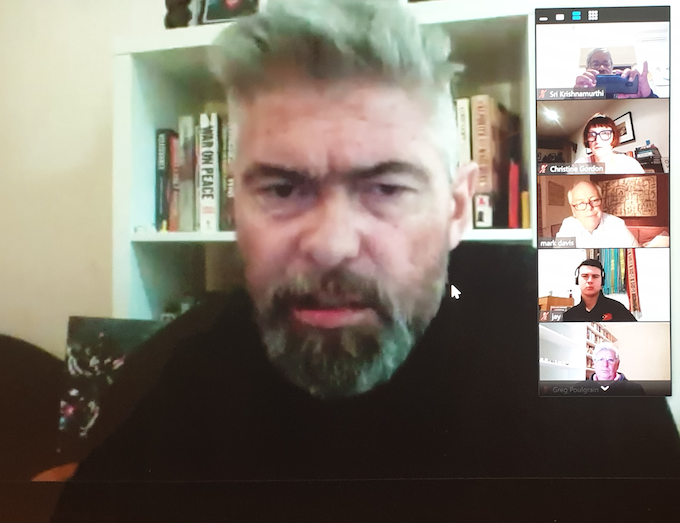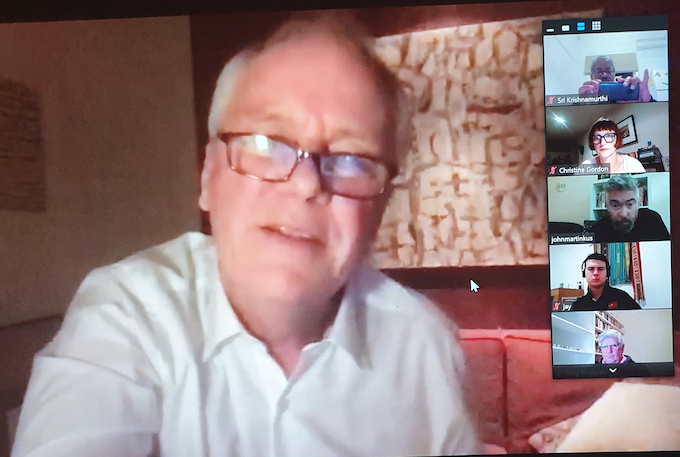
By Sri Krishnamurthi, contributing editor of Pacific Media Watch
Australian war correspondent and investigative journalist John Martinkus warns the West Papuan conflict is “reigniting” and “that’s happening now with new weapons and 20-year-olds”.
Speaking to a group via Zoom – including Pacific Media Watch – last night at the launch of his new book The Road: Uprising in West Papua, he believes the intransigence, atrocities and militarism of the Indonesian authorities has forced this response.
The book tells how a 4300 km Trans-Papua Highway is carving a slice through the jungles and mountains of West Papua to bring “development” and military outposts to remote parts of the vast territory.
READ MORE: West Papua’s highway of blood – a case of destruction not development
“I would love to go back,” said Martinkus in the “conversation” with Mark Davis – himself a renowned SBS television journalist – organised to mark the launch.
Davis has visited West Papua several times – sometimes in secret such as when he filmed the award-winning 2000 documentary Blood on the Cross, and also openly, as with West Papua’s New Dawn in 2014.
Davis has also known Martinkus for more than two decades before The Road author went off to cover the US-led coalition war in Afghanistan.
“The highlands – what the Indonesians have done is pushed this development into areas they’ve never gone,” said
‘Serious attacks’
“Then in the late 1970s and 80s these guys have been subject to pretty serious attacks,” he said.
“What we’ve seen in the last two years is these people are fleeing to Papua New Guinea to get away from the fighting.”
The Nduga and the Dani tribespeople had for centuries in the highlands used to fight each other, but now they had a different enemy to combat.

The highway heads up from the coast and punches through the highlands where the minerals are – copper and gold – which is what the Indonesians are after, regardless of the destruction.
“This is the largest equatorial crisis in the world,” said Martinkus.
“You can’t walk into there, its really, really hard, and they [Melanesians] don’t like their land being stolen.
“I’ve noticed that the conflict will reignite and that is happening now with new weapons and 20-year-olds.”
Invasion failed, diplomacy won
The conflict began in 1961-2 when Indonesian paratroopers invaded the Papuan region while the Dutch colonial authorities were preparing the Melanesians for independence.
The invasion was a failure but Indonesia subsequently won the diplomatic struggle and critics say Jakarta manipulated the United Nations into allowing it to annex West Papua through a sham “Act of Free Choice” in 1969.
West Papuans are campaigning for United Nations support for a new referendum on independence.
Martinkus spoke about 1 December 2018 when a bunch of roadside Indonesian workers were filming the West Papuans raising the banned Morning Star independence flag and were shot. The Indonesians sent in paratroopers and helicopters with phosphorus bombs in retaliation.
But this does not deter Martinkus.
As he says: “I would be quite open to going there because I think it is really important. It was an issue that I felt was unsettled, it is unfinished business.”









































I hope West Papuan young generation could bring peace by dialogue.
Comments are closed.